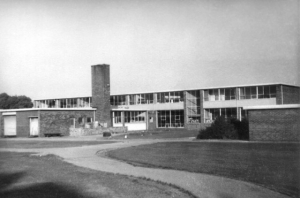 CF Patron, Demitri Coryton, has published an interesting paper looking at the history of the development of selective and comprehensive education. He describes the political forces at play when selection was adopted and then later phased out in most of the country. It is well worth reading in full.
CF Patron, Demitri Coryton, has published an interesting paper looking at the history of the development of selective and comprehensive education. He describes the political forces at play when selection was adopted and then later phased out in most of the country. It is well worth reading in full.
Here is a description of the positive move to push for comprehensive education in the 1960s. ‘There was a sea change of opinion in the 1960s. In the early part of the decade the Organisation for Economic Cooperation and Development (OECD) began publishing reports highlighting the failures of selective systems. These would become increasingly influential. The National Union of Teachers, most of whose members taught in primary schools where the union had a virtual monopoly, changed from being strongly pro-selection to supporting comprehensives. Within the Labour Party, the pro-comprehensive supporters had at last triumphed and Labour tapped into the growing demand for change with a strongly pro-comprehensive line. It helped Labour return to power in 1964 and win a bigger majority in 1966.
The result was Circular 10/65 which required all LEAs to submit plans for comprehensive reorganisation. This political movement was underpinned by the seminal Plowden report, Children and Their Primary Schools, published in 1967. (In Wales there was a parallel report, Primary Education in Wales, the Gittens report. Plowden (and Gittens) came down unequivocally in favour of ending selection. This was not just because grammar schools were not the most effective way of educating children, but because of the harm done to the roughly 80% of children who failed their 11+ (or did not take it) and went to secondary moderns. As Plowden warned, “selection procedures may create the future they predict. The reputation, good or bad, which a pupil earns by his performance at 11 tends to influence what his teachers and parents expect of him in the future and what he feels he can do. Boys and girls tend to live up to, or down to, their reputations.”
As we all know, selection remained in a great many authorities, and this paper details exactly why around 20% of England’s school children still live with academic selection. It also outlines why there has been no real progress with resolving this problem.
Demitri says, ‘Policy in this areas is determined by politics, not facts or evidence. Labour does not want to risk upsetting its carefully crafted moderate image under Starmer. The Conservatives don’t want to take on the right wing of the party in the remaining selective areas.’
The paper lists an overwhelming body of evidence detailing the problems of selection.
‘The OECD has been producing reports showing the benefits of comprehensive education since the early 1960s.
From 1980 its research Programme for International Student Assessment (PISA) has repeatedly shown both academic andsocial benefits from comprehensive systems. The 2012 PISA report stated: “Early student selection has a negative impact on students assigned to lower tracks and exacerbates inequities, without raising average performance.”
As Andreas Schleicher, Director of the OECD Education and Skills Directorate, said to Education Journal in September
2022: “The evidence from PISA shows no positive correlation between early selection and better overall academic
outcomes, but it does show a strong correlation between selection and the impact of social background on learning
outcomes.”
Speaking at the launch of the OECD annual publication, Education at a Glance, in 2016, Andreas Schleicher said: “Schools are very, very good in selecting students by their social background but they’re not very good in selecting students by their academic potential. And the earlier they select, the worse that relationship is. Academic selection ultimately becomes social selection.”
Within the UK, research over decades has consistently shown the advantages of comprehensive education. For
example, in the mid 1970s Surrey County Council had a report from its Chief Inspector, Joan Dean, put before the Education Committee, which showed improvements at every level, from screening tests of five year olds to Oxbridge entrance, which followed the phases of primary and secondary reorganisations across the county. (Surrey had undertaken a Plowden reorganisation of primary schools and comprehensive reorganisation of secondary schools in phases across the county, starting in the west and ending up a few years later in the east of the county.)
In 2013 the journal the Oxford Review of Education published a paper on selection in Buckinghamshire. It found
that any success that grammar school pupils had was at the expense of pupils not in grammar schools. It also found that: “The low prevalence of FSM (free school meals) eligible pupils in the grammar schools casts doubt on their ability to aid social mobility.”
There are several more excellent examples of research proving 11-plus selection doesn’t work!
It is an excellent paper, and thanks to Demitri and Education Publishing for sharing this with CF. It can be read in full HERE.





